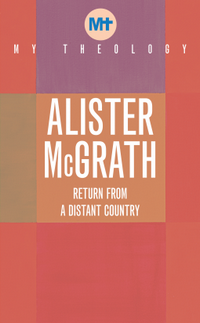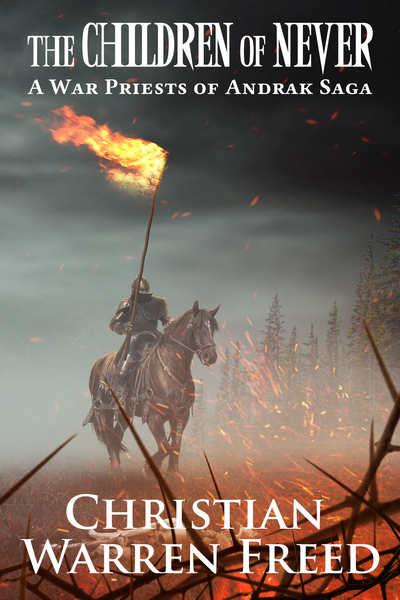 |
My Theology:
|

What’s Return from a Distant Country About?
In this brief work, McGrath starts off with a brief spiritual biography—sketching out his early life and interests and then what brought him to faith while a student at Oxford.
He then gives a brief definition of theology and how he sees himself as a theologian, and how he’s demonstrating both in his own work. He then sketches out four main themes in his own work and theology—historical theology, the relation between natural sciences and theology, Christian Apologetics, and theological education—both a look at his and then how he tries to educate others.
The My Theology Series
The publisher’s website (Darton, Longman & Todd) describes this series as: “The world’s leading Christian thinkers explain some of the principal tenets of their theological beliefs.” The US Publisher (Fortress Press) helpfully adds “in concise, pocket-sized books” to that description. It looks to be sixteen projected volumes published from September 2021-March 2022 (in the UK), this volume will be published in the U.S. in January, and I would expect the rest to follow a similar schedule.
I think that’s an interesting, and potentially fascinating, idea. I don’t recognize the overwhelming majority of names, which I guess indicates how far my finger is from the pulse of the world’s leading Christian thinkers. I’m a little curious as to who these people are, which might lead me to read some more of these books.
So, what did I think about Return from a Distant Country?
I’ve started reading “intellectual biographies” in the last few years, and I guess this is pretty much a (mini) intellectual autobiography, which isn’t the way I’m used to reading. As such it was an interesting exercise. There was a time when I’d frequently read McGrath’s work, but it’s been a long time since I did—not that I didn’t appreciate it, I just had other priorities. It was nice to touch base with him after all this time. Seeing how he views his work within these four themes–and what he thinks about them–helps the reader understand him as a thinker, theologian, and (I’d imagine) person better than you did before.
I enjoyed this work, and think I got something out of it but it wasn’t as good as I’d hoped. Too much of McGrath’s description of his work makes it seem like Christianity is a largely—maybe even almost exclusively—a cognitive matter—all about thinking the right things to the exclusion of feeling, belief, and action. That’s a tendency for those in the neighborhood of conservative evangelicalism—particularly those with some connection to Reformed theology. I personally would’ve appreciated it if McGrath had made it clear that wasn’t his intention or belief. But that’s a more of a me thing than a substantive criticism.
I wouldn’t say that this book gave me new insight into Christian theology or any of the themes he addressed. But I got a better insight into who McGrath is and what I should expect as I read his other work—which, for a series called “My Theology” makes a lot of sense.
Disclaimer: I received this eARC from Darton Longman Todd via NetGalley in exchange for this post—thanks to both for this.

This post contains an affiliate link. If you purchase from it, I will get a small commission at no additional cost to you. As always, opinions are my own.
![]()





